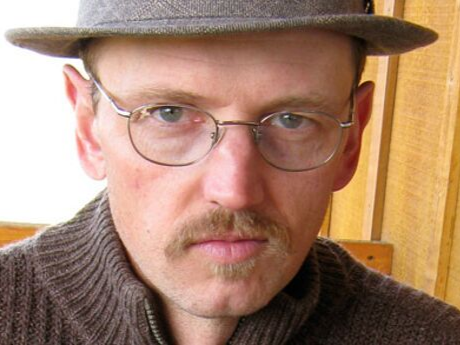New American Poets
New American Poets: Michael Earl Craig

Why Have I Returned to New England
It seems there's always an icicle
or pair of them
hanging, over an infant,
a sleeping newborn infant,
O subtle return to that which matters—
boat on the harbor—
quick flash of blue
in the lid of the Zippo—
the softest, darkest of hair
gently loosed from a bun,
then put up again,
almost immediately.
*
So very cold tonight.
An Amish beard in the road.
The humor of logs, of twigs.
A single twist of smoke from the chimney,
taking its place on the mind.
"Why I Have Returned to New England" by Michael Earl Craig from Can You Relax in My House (Fence Books, 2002). Copyright © 2002 by Michael Earl Craig. Reprinted with the permission of the author.
I once toured a tennis ball factory and a retired prostitute asked me, "Is there a collaborative element to your writing process, and if so what do you think it is?"
My initial response was "No, not that I'm aware of," and yet the more I've thought about it I'd say that yes, there is a kind of collaboration that goes on, that is constantly going on, between me and various people who are important to me, who have somehow spoken to me along the way.
I say "a kind of collaboration" because these people may be dead; that, or they've never met me. And yet I still take from them certain moods, directions, cues. These cues are often where poems originate, or they're places toward which poems travel.
I'm thinking of a large bureau, built a bit recklessly but with many drawers, some of them wide, some narrow, all of them neighboring, orderly; so that Joel-Peter Witkin's embroidered briefs can be said to rest near a single starched headband that belonged to Björn Borg, which in turn rests near Lou Reed's tube socks and isn't far from Angelo Badalamenti's breath mints, or Werner Herzog's ammo. belt, or the favorite smoked sausages of Julio Cortázar.
In closing I'd like to say that I don't think you get to choose the direction you go in. Not really. You interpret lumps in the sandbox the same way now as you did when you were five. All one can do is drift—or gravitate, if that's easier—back toward—or go, one could simply go—back toward the very inner self, which was there, intact, at the outset. I don't think you can become another person. Do you?


